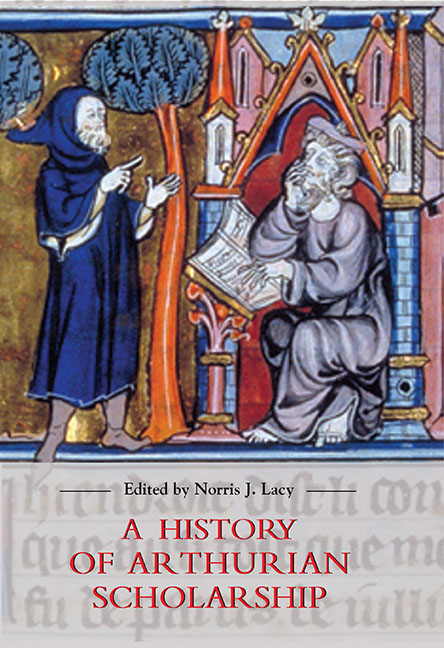Modern Literature in English
Published online by Cambridge University Press: 18 March 2023
Summary
Tennyson was still the pre-eminent Arthurian author, Malory a fairly recent addition to the canon of English literature andWagner a potent new force on the Arthurian scene when at the end of the nineteenth century a few men of letters began to look back and discern something like a postmedieval Arthurian literary tradition. The impulse to connect modern works with their medieval sources and influences was felt first in America and Australia and not in Britain – it was a time when Jessie Weston was attempting to spur the interests of her countrymen by complaining of ‘the ignorance of the Arthurian legend common in England’ – and early efforts to explore the tradition were understandably uneven.
MungoW.MacCallum, whose Tennyson's Idylls of the King and Arthurian Story from the XVIth Century (1894) was based on lectures delivered at the University of Sydney, admitted that ‘working to a great extent without predecessors’, he had to gather his data ‘from chance hints and general reading’. Even so, in the gentlemanly prose of his day, MacCallum tells a good story based on wide reading in the standard authors and reveals a familiarity with the major continental writers as well. The thrust of his exposition, as in other attempts of his era at constructing an Arthurian literary history, is to reveal how the succession of Arthurian works through the centuries had culminated in Tennyson's Idylls. MacCallum recognizesMalory as a ‘landmark and a fountain-head of literature’, and he offers considered opinions on Malory's best-known successors, liberally illustrating his judgments with quoted passages. Thomas Hughes's The Misfortunes of Arthur is characterized as ‘the single masterpiece of the Senecan tragic style in Elizabethan literature’, a sentiment not universally shared, and he deems Rowley's Birth of Merlin a ‘miserable fabrication’ and its attribution to Shakespeare an absurdity.
The ground MacCallum covers between Spenser and the Victorians is now familiar, but much of it was all but forgotten by the 1890s. The abandonment of plans for Arthurian epics byMilton and Dryden is explained, a balanced view of Blackmore's epics is offered, and the renewal of interest in things medieval at the end of the eighteenth century is recognized in the publication of old ballads and romances.
- Type
- Chapter
- Information
- A History of Arthurian Scholarship , pp. 233 - 251Publisher: Boydell & BrewerPrint publication year: 2006



